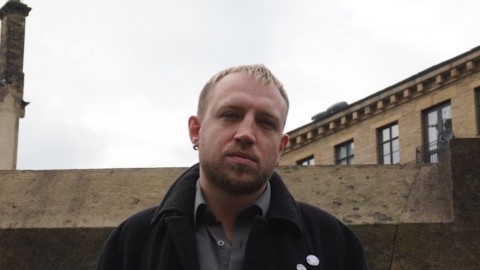Few bands could return into the maelstrom of hate and division that is modern Britain that would feel as needed as Cornershop. Since 1991 they have been provocateurs, genre builders and classic songsmiths (1997 breakthrough ‘When I Was Born For The 7th Time’ remains one of that decade’s greatest accomplishments). They have also been one of Britain’s most beloved cult bands, as well as one of pop culture’s most consistently sussed voices on diversity and race.
Thankfully, their recent absence (their last release was 2015’s ‘Hold On It’s Easy’) is about to come to an end, with the release of the band’s ninth album, ‘England Is A Garden’, on March 6. It’s an excellent collection of songs, with a lot to say. Here the bands fulcrum – multi-instrumentalists Tjinder Singh and Ben Ayres – tell us about where they’ve been and their special relationship with Oasis as well their longstanding arch nemesis Morrissey.
Hello fellas! A proper Cornershop album! It’s been a while! Why?
Tjinder: “Yeah, I guess it has been. A lot of people didn’t consider the ‘Urban Turban’ [a 2012 record of collaborations] a proper Cornershop record. Nor did they [2011’s] ‘Cornershop and the Double ‘O’ Groove Of’. But we did! And around that time, I, personally, wasn’t feeling too great. I had to take some time out and get better. And that’s taken a while.”
Sorry to hear that Tjinder. What was wrong?
Tjinder: “I think the simplest way of explaining it was I was having dizzy spells. We don’t know why it was happening, but I had to change my life completely; we got a dog, I changed my diet, I stopped doing anything that was bad for me.”
Ben: “We went on a lot of long walks together…”
Tjinder: “Some people said it was an anxiety thing… It hasn’t totally gone. A couple of weeks ago it felt like it was coming back. I think it’s something I’m going to have to keep attending to and keep reassessing what in my life I can change to manage it. One thing was deciding not to tour anymore. That was fine. I never wanted to tour!”
Ben: “We were always meeting up during this time. We were always kicking around ideas. We’d start songs – sometimes we wouldn’t finish them, but we’d definitely start them…”
Tjinder: “One of the reasons this album has taken a while is we were writing songs, but I just wasn’t in the headspace to create like we normally do. I usually have a sketch of the lyrics first, but I couldn’t do that this time. We went down a bit of a rabbithole, really. We were also looking at the music industry and thinking, ‘I’m not sure Cornershop would do very well, right now’ So we left it. Now? Now I think we’re ready to get involved and do some good stuff…”

Pleased to hear it. What observations did you have about the music industry during this time?
Tjinder: “I’ve was quite surprised by what I’ve seen. I don’t think the music industry has been very creative [in the time we’ve been away]. I think it’s been quite safe and quite flat. It’s weird that more people are making music than ever before, and yet it’s like that. That’s really sad when you think about it.”
I’m not sure I agree. My general view is that when people say things like, ‘music is really safe right now’, they’re just not looking in the right places…
Tjinder: “I just think that in time where there’s so much politics going on, there’s not a lot of politics in music.”
Ben: “Or not enough, anyway…”
Tjinder: “Paloma Faith isn’t politics. That’s business. That’s bullshit. There’s just not enough reflecting. It’s not good enough because music has always been a political thing; if music moves you, it moves politics as well.”
How do you remember the 1990s? Britpop gets a lot of grief retroactively, but it had people of colour and lots of women making music, sexuality was so fluid – and you had scenes like riot grrrl feeding into it…
Ben: “That’s exactly how I remember it. I think British society has regressed a lot since the 1990s in a lot of ways. I think a lot of lessons have been unlearnt.”
Tjinder: “Cornershop really appreciated our time with the riot grrrl scene. We always saw it a bit like how reggae and punk became bedfellows in the 1970s; two marginalised groups coming together, united by politics, with a shared feeling of being let down. The 1990s had some really interesting things going on, but by the end of the decade it was back to guitar groups singing boring love songs.”
Oasis really championed Cornershop. They took you on tour and their members even guested on your records. That felt big…
Tjinder: “We had great discussions. It wasn’t just hanging out. We talked about songwriting all the time.”
Ben: “I think they appreciated where we were coming from and felt they were coming from a similar place. We talked about records we liked. Noel was obsessed with the Bobby Womack album, ‘Across 110th Street’. That’s a really important record to us too. And of course, we started out playing gigs in Preston and stuff. They’re from Manchester…”
Tjinder: “I used to live in Manchester.”
Ben: “When we went out tour with them they couldn’t have made us feel more at home. We almost expected it to be a bit of a prickly situation, with the press that was going on at the time and all the fighting within the band. But they got their security to look after us, we used their roadies, their guitar tech. They were just unbelievably kind.”
And what about their fans?
Ben: “Well we got pelted with bottles when we supported them at Hyde Park – but everyone who supported Oasis at that gig got bottled. The crowds in America, where we did most of the dates, were amazing.”
Let’s talk Morrissey. You were burning photos of him outside the EMI offices almost 30 years ago. Do you feel any sort of vindication?
Tjinder: “Not really, no. That’s not the right word. We’re happy we did what we did, even though we were sort of ridiculed for doing it. But then Cornershop were always ridiculed about stuff.”
So how have you felt as Morrissey’s approach to race has become more emboldened in recent years?
Tjinder: “I’ve been surprised. I didn’t think his views were as acute as they are. He’s certainly put his foot down! But yes, I think if you know what you’re looking for, then it was always there… I just don’t get him. He’s Irish, and historically the Irish have been as put down as the Indians. It’s just a bee’s nest of bullshit he comes out with. There’s some sexual frustration with him isn’t there…”
‘England Is A Garden’ is released March 6 on Ample Play Records
The post Cornershop: “There’s not a lot of politics in music. Paloma Faith isn’t politics. That’s business.” appeared first on NME Music News, Reviews, Videos, Galleries, Tickets and Blogs | NME.COM.









